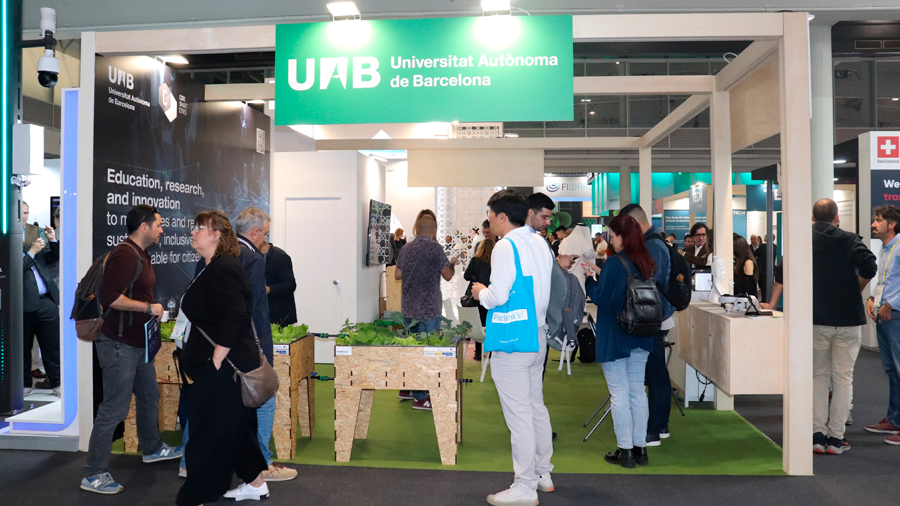The UAB presents smart, sustainable and inclusive city models at the Smart City Expo World Congress

From 15 to 17 November, the UAB will have a stand at the Smart City Expo World Congress (SCEWC), which will be held at the Gran Via Venue in Barcelona.
09/11/2022
This is the first year the UAB will have its own stand at the Smart City Expo World Congress (SCEWC), an international event on smart cities and urban solutions organised by the Fira de Barcelona, in which the technological capacities and knowledge of UAB research groups to create outstanding projects that improve the lives of people will be on display. The UAB is home to the CORE in Smart and Sustainable Cities, a strong research network made up of researchers from different disciplines belonging to this field, and was the first university in Spain t offer a bachelor's degree in Management of Smart and Sustainable Cities.
At the stand, visitors will be able to see the prototype of a hydroponic garden for offices, developed by the Sostenipra research group at the Environmetnal Science and Technology Institute (ICTA-UAB) and sold by the UAB spin-off Tectum, whose objective is to transform working spaces into renaturalised spaces. The AstroPlant kit will also be on display. This tabletop greenhouse can be used to grow food using artificial lights and mineral dissolutions instead of agricultural soil. AstroPlant is a citizen science project which forms part of the MELiSSA initiative, in which researchers from the Department of Chemical, Biological and Environmental Engineering have spent 27 years studying new microecological life-support systems for the European Space Agency. Participants from all across Europe built their own mini greenhouses to be able to collect data and gain knowledge for space exploration in the future.
Other projects focus on the management of inclusive, fair, healthy and sustainable urban environments. One of them, the CARE citizen arenas, is a waste management initiative that connects citizens and researchers to improve the environmetnal quality and the use of city resources. There are also projects with a sociological focus, such as the Explorador Social, the result of a collaboration between the Centre for Demographic Studies (CED-UAB) and Social Explorer to collect, match and share georeferenced data on the Spanish population from the past few decades, and the Metropolitan Laboratory of Ecology and Territory of Barcelona (LET), which aims to contribute to developing new criteria and concepts, maps and databases, models and indicators, for the analysis of a metropolitan system from a socio-ecological perspective.
With regards to innovative technologies, the most outstanding elements include the LoRaWAN network installed on the UAB campus, a location and information system on underground plains and channels, low-cost and versatile smart windows based on polymer compounds, GNSS technologies, and a network of sensors for the management of a smart city.
In addition to the stand, the UAB will also be holding a talk on Wednesday 16 November at 4:30 p.m. at the Agora of Innovation Plaza.
The catalogue of projects and agenda of UAB activities can both be viewed at https://www.uab.cat/core-ciutats/smartcityexpoworldcongress/ (in Catalan).